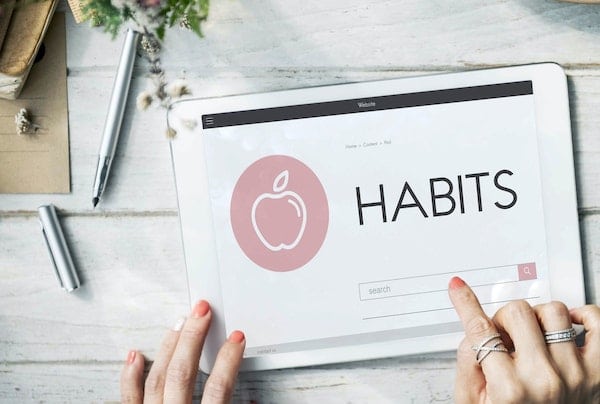
I help people declutter their lives and get rid of the bad habits that led to the chaos in the first place. Sometimes, my professional advice seems a lot like something you might hear from a life coach. But, good habits are the key to getting organized. After all, my Three P’s (planning, process, and procedures) which help people stay organized and have a good work-life balance, are also keys to long-term success.
Recently, some of my friends in the coaching field have written advice about forming good habits and letting go of things. My colleague, Dr. Brian Walsh, who collaborated with me on the self-hypnosis CD Ending Procrastination, provides this advice on improving behaviour:
Over 97 percent of our behaviours are unconscious. These behaviours are the result of imprinted patterns. Most of these were created when we were very young, perhaps under the age of seven. Another term for these patterns is habits, and yes, procrastination is a habit. It was learned, so it can be unlearned.
Most people believe that it takes 30 days to establish a new habit. Recent research has found that anyone can establish a new habit in as little as five days. Now, there’s a catch to this. Even if you have planted a new habit, the old one is still hanging around and is fighting for survival. Old habits die hard.
Here’s the key to success. Be aware that every time you fall back into the old habit, it will gain strength, and the new pattern will begin to weaken. The converse is true: Every time you practice the new pattern, it will gain dominance over the old one. Eventually, it will dissolve, and that might take 30 days. You’ve heard that “Practice makes perfect.” Actually: “Practice makes permanent.”
On the topic of how to make your habits work for you, Life Coach Julia James has written a great article. Here are her steps to follow:
Steps to Build Good Habits
- First, pick a habit to establish.
- What would be the smallest action you could take to get started? Commit to doing this one small thing on a regular basis, ideally on a schedule.
- Set up a reminder to help you remember your commitment.
- When you feel ready, gradually increase your commitment – but no more than you can consistently do.
- Share your commitment with someone. Accountability really helps.
- Identify the personal values you are honouring with your action.
- Notice how good you feel when you follow a healthy habit; give yourself kudos for taking this positive step.
- Stick with your new habit for at least 30 days. Before long, this behaviour will feel automatic and you won’t have to think about it anymore.
I’ve written before about how to face down the challenge of letting go of stuff that we don’t need. But what happens when your identity is tied to the things you own? Living in Vision Coach Lynne Brisdon discusses how to get past your hesitation:
When we have a strong attachment with our stuff our identity can feel threatened if we let go of it. This also has to do with being afraid of change and needing to control our surroundings in order to feel secure. The antidote is to shift to a sense of self-identity that is truly about being who you are and not associated with having stuff.
This can also be related to the mistaken assumption that material objects: cars, a new PDA, or outfit, will fulfill us or have us feel complete. We feel good for a little while after acquiring the object of our desire, but we soon end up feeling empty again. We mistakenly equate having stuff with being loved instead of feeling whole and complete regardless of our belongings.

One comment:
Comments are Closed.